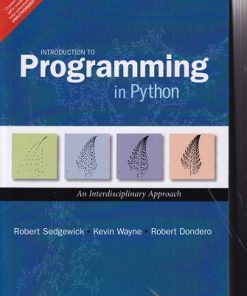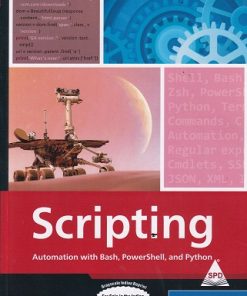No products in the cart.
| Authors Name | |
| ISBN 13 | |
| Publisher | |
| Edition | |
| Pages | |
| Language | |
| Publishing Year |
Email on info@pragationline.com if e-book is not found.
Estimated Delivery Time
Within Pune (1 to 2 days),
Within Maharashtra (2 to 5 days),
Outside Maharashtra (3 to 6 days) and
J&K, Ladakh and North East (5 to 8 days).



 Zoom
Zoom









Reviews
There are no reviews yet.